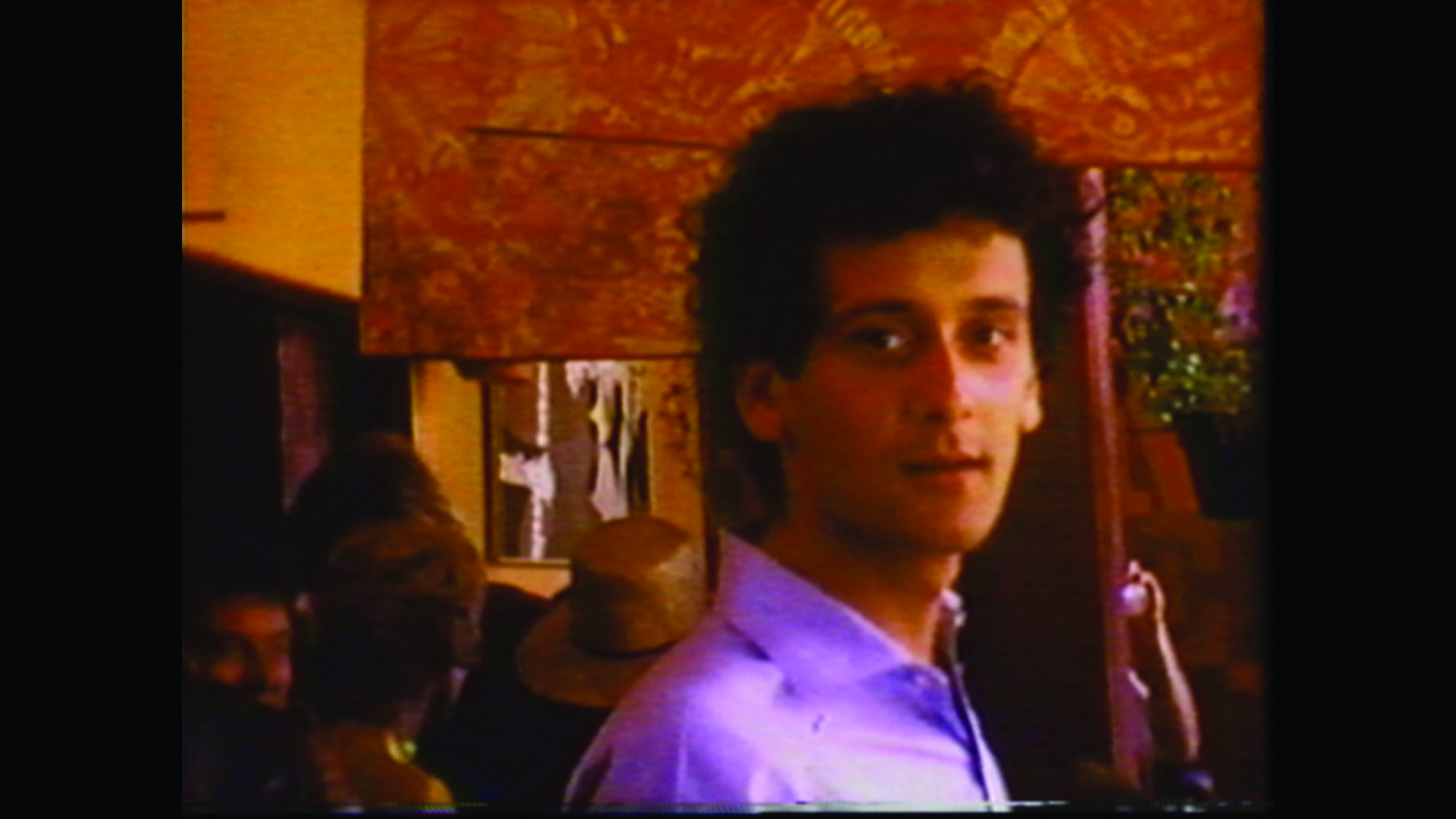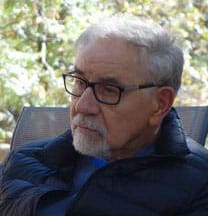
San Francisco. 1966. I’m in the audience watching The Committee, a cutting-edge improv group known for its stinging social and political satire.
The emcee introduces “young rabbinical student, Lawrence P’nay du Cohen.” The audience titters as a skinny, doe-eyed yeshiva bocher walks center stage in frock coat, black hat, payot. The lone discordant note in his outfit are his large cowboy boots, which he nearly trips over. He grabs the mic and squeaks, “Hello, hello” in a nasal whine: “Yoo-hoo, hello-o-o …” It’s hilarious, and he hasn’t even begun his act.
A guitar and drum play the intro to “These Boots Are Made for Walkin’ ” and “Lawrence” croons in a heavy Yiddish accent: “You keep zayin’ you got zompin for me…”
“Lawrence” is shy at first, but the spotlight loosens him up. When he gets to the refrain, he’s flailing his skinny arms and stomping his boots. The audience roars its approval. Some are choking with laughter. When he reaches the ending — “Are you ready, boots? Shtart valking!” — we’re standing, clapping, demanding more. So he does the song again. Feeding off our frenzy, “Lawrence” turns sideways so we see his profile. He windmills his arms and goose-steps his long legs. The Yiddishisms -— guttural r’s, eye rolls, feline smiles — become even more pronounced. We’re on the floor, laughing helplessly. He’s done what every comic aspires to do but very rarely does: killed the audience.
“Lawrence” was actually Christopher (Chris) Ross, a 21-year-old comic actor who was new to The Committee. I was certain I’d witnessed the birth of a star. But I was wrong. Four years later, he was dead.
Unlike Jim Morrison or Janis Joplin — who also died young — Ross received no posthumous adulation, no biopic, no documentary. From 1966 until his death in 1970, he performed on stage, TV and in movies, but there are scant references to him in showbiz databases and no Wikipedia entry. When he died, no newspaper marked his passing.
But his performance had lodged itself in my mind. So, 48 years after his death, I wanted to find out who Chris Ross was and why he had died so young. My first stop was at the Los Angeles County Registrar-Recorder office in Norwalk, where his death certificate is on file. The official document says that on May 5, 1970, Ross’ body was found in an apartment in West L.A. Cause of death: “Occlusive coronary artery disease, arteriosclerosis.” A heart attack.
Unlike Jim Morrison or Janis Joplin — who also died young — Ross received no posthumous adulation, no biopic, no documentary.
I contacted Larry Hankin, Ross’ colleague at The Committee and on a short-lived ABC-TV show called “The Music Scene,” which presented the week’s top songs in a hip manner. At a coffee shop in Marina del Rey, Hankin told me that Ross moved to L.A. to perform on “The Music Scene,” which featured some of The Committee troupe doing sketch comedy.
“[Ross] was incredibly talented and had a unique take on the world,” Hankin said. “He was smart, had perfect comic timing and he crossed boundaries, personal boundaries. He was always curious.”
“Where [Ross] might have gone, if he had lived, is quite amazing,” said Alan Myerson, who founded and directed The Committee. “Besides worming his way into our hearts, he was also just brilliant. He was complicated, sweet, and had something of a dark side. ‘These Boots Are Made for Walkin’ ’ is an indication of that. [Ross also] did Danny D’Marko, an Italian-American lounge crooner. It was an extraordinary invention. Chris’ choice of material was unique. He did The Beatles’ “I Am the Walrus.” He’d croon ‘custard running from a dead dog’s eye’ as a love song. This was part of the darkness that Chris had.”
I sensed that Ross could have been another Robin Williams, someone whose bust-out comedy had no physical or emotional restraints; and also someone who could have been a great actor, thoroughly immersing himself in a character.
The picture, however, was still not clear. So I went to the Bay Area, where his younger brother, Fred, lives. I asked him why his brother was named “Christopher.”
“It’s not a name Jewish parents give their kids,” Fred said. “But my mom loved the [A.A. Milne] character Christopher Robin, who had the qualities she wanted her son to have.”
Fred also revealed that his parents were descended from San Francisco’s earliest Jewish settlers. “Our father, Herb Ross, changed the name from Rosenbaum,” Fred said. “The Rosenbaums came to San Francisco in the 1850s on the SS Tennessee, which ran aground in the fog north of the city, in Marin. All 500 passengers disembarked safely.”
Via public records, Ancestry.com and interviews, Fred discovered that “on my mother’s side, our great-great-great-grandfather was Elkan Cohn, who came out west in 1860 and became rabbi of Temple Emanu-El. He was the first Reform rabbi in San Francisco.”
So Chris Ross, in a sense, really was the yeshiva bocher he portrayed.
“I was a complete mess after Chris died,” Fred said. “For a year or two I could barely walk out on the street. He was my main teacher and closest friend.”
What did Fred know about his brother’s death?
“The death certificate was wrong,” he said. “Chris died of a heroin overdose, While he was in L.A. working on ‘The Music Scene,’ he got hepatitis — probably from needle use. So he came up to San Francisco and lived with me for weeks, trying to kick his heroin addiction. I thought it would help him if he did something with his hands, so I had him paint my apartment. But he was too messed up, so he did a terrible job.”
After Chris died, Fred went to Los Angeles to clear out his brother’s things. There, on the coffee table in plain view, was a small envelope with heroin. “The police hadn’t taken it,” he said.
I thought of the lyrics to “These Boots Are Made for Walkin’ ”:
You keep playin’ where you shouldn’t be playin’,
And you keep thinkin’ that you’ll never get burned …
I also recalled Larry Hankin saying Ross’ curiosity was his strength as a comic actor but it might also have been what led to his early death.
Myerson had a different view.
“All of us are driven by curiosity,” he said, “but I think Chris was a young, middle-class Jewish kid who wanted to be hipper than he was. Who knows, had he not grown up in San Francisco in the 1960s, he might well have been a yeshiva boy. But he grew up in the 1960s in San Francisco. It was a wonderful but, in certain cases, a dangerous time to grow up.”





















 More news and opinions than at a Shabbat dinner, right in your inbox.
More news and opinions than at a Shabbat dinner, right in your inbox.